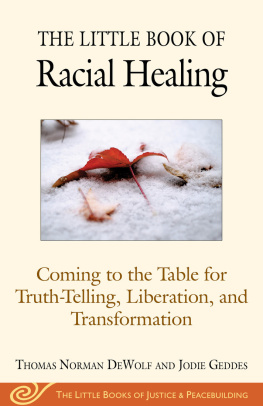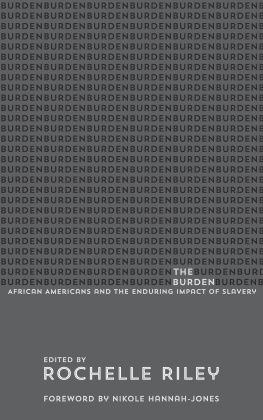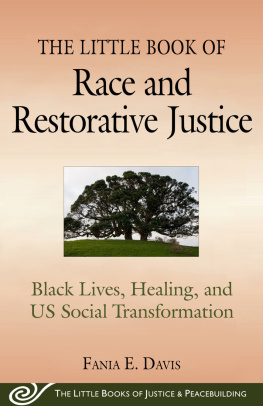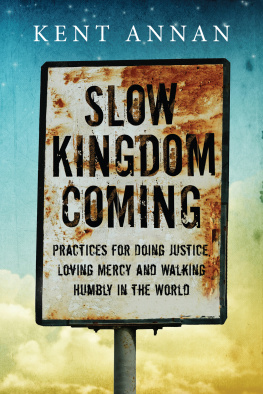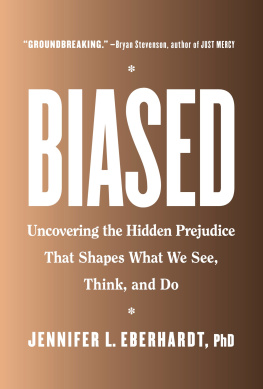
Published titles include:
The Little Book of Restorative Justice: Revised & Updated, by Howard Zehr
The Little Book of Conflict Transformation, by John Paul Lederach
The Little Book of Family Group Conferences, New-Zealand Style, by Allan MacRae and Howard Zehr
The Little Book of Strategic Peacebuilding, by Lisa Schirch
The Little Book of Strategic Negotiation, by Jayne Seminare Docherty
The Little Book of Circle Processes, by Kay Pranis
The Little Book of Contemplative Photography, by Howard Zehr
The Little Book of Restorative Discipline for Schools, by Lorraine Stutzman Amstutz and Judy H. Mullet
The Little Book of Trauma Healing, by Carolyn Yoder
The Little Book of Biblical Justice, by Chris Marshall
The Little Book of Restorative Justice for People in Prison, by Barb Toews
The Little Book of Cool Tools for Hot Topics, by Ron Kraybill and Evelyn Wright
El Pequeo Libro de Justicia Restaurativa, by Howard Zehr
The Little Book of Dialogue for Difficult Subjects, by Lisa Schirch and David Campt
The Little Book of Victim Offender Conferencing, by Lorraine Stutzman Amstutz
The Little Book of Restorative Justice for Colleges and Universities , by David R. Karp
The Little Book of Restorative Justice for Sexual Abuse, by Judah Oudshoorn with Michelle Jackett and Lorraine Stutzman Amstutz
The Big Book of Restorative Justice: Four Classic Justice & Peacebuilding Books in One Volume, by Howard Zehr, Lorraine Stutzman Amstutz, Allan MacRae, and Kay Pranis
The Little Book of Transformative Community Conferencing, by David Anderson Hooker
The Little Book of Restorative Justice in Education , by Katherine Evans and Dorothy Vaandering
The Little Book of Restorative Justice for Older Adults , by Julie Friesen and Wendy Meek
The Little Books of Justice & Peacebuilding present, in highly accessible form, key concepts and practices from the fields of restorative justice, conflict transformation, and peacebuilding. Written by leaders in these fields, they are designed for practitioners, students, and anyone interested in justice, peace, and conflict resolution.
The Little Books of Justice & Peacebuilding series is a cooperative effort between the Center for Justice and Peacebuilding of Eastern Mennonite University and publisher Good Books.
Cover photograph by Howard Zehr
Copyright 2019 by Thomas DeWolf and Jodie Geddes
All rights reserved. No part of this book may be reproduced in any manner without the express written consent of the publisher, except in the case of brief excerpts win critical reviews or articles. All inquiries should be addressed to Good Books, 307 West 36th Street, 11th Floor, New York, NY 10018.
Good Books books may be purchased in bulk at special discounts for sales promotion, corporate gifts, fund-raising, or educational purposes. Special editions can also be created to specifications. For details, contact the Special Sales Department, Good Books, 307 West 36th Street, 11th Floor, New York, NY 10018 or .
Good Books is an imprint of Skyhorse Publishing, Inc., a Delaware corporation.
Visit our website at www.goodbooks.com
10 9 8 7 6 5 4 3 2 1
Library of Congress Cataloging-in-Publication Data is available on file.
Paperback ISBN: 978-1-68099-362-2
eBook ISBN: 978-1-68099-363-9
Printed in the United States of America
Table of Contents
Introduction
O n a brisk, sunny Seattle day in February 2017, family and friends gathered to celebrate the life of Susan Hutchison, who had passed from this life two months prior. People who walked with Susan along the various paths she had traveled throughout her lifes journey shared stories of their times together. The common thread was Susans commitment to truth, healing, and love. Squi qui Ray Williams, a Swinomish elder of the Coastal Salish People who shared in prayer, drumming, and song, said that in remembering Susan, we were re-membering her; putting her back together through our memories and stories.
A direct descendant of President Thomas Jefferson, Susan knew her familys long, deep connection to slavery. In 2003, she attended a gathering of descendants of Jefferson and his wife, Martha, and those of Jefferson and the woman he enslaved, Sally Hemings. The attendees built friendships and embraced each other as family and cousins, affectionately referring to themselves as Sallys and Marthas. In her quest to meet more descendants of families who had enslaved people, she met Will Hairston, a descendant of one of the largest enslaving empires in the Old South. Susan and Will dreamed of a family reunion in which descendants of people who were enslavers gathered with descendants of people their ancestors had enslaved. They believed that as people built relationships with those on the other side, the deep, historic wounds engendered by the legacy of slavery could be confronted and potentially healed.
Dr. Kofi Anyidoho, of the University of Ghana, describes the present-day consequences of slavery as a tragic accident in which people today are still bleeding to death. Slavery is a living wound, under a patchwork of scars.
Susan and Will were inspired to begin this healing by Dr. Martin Luther King Jr.s words, spoken from the steps of the Lincoln Memorial in Washington, DC, on August 28, 1963: I have a dream that one day on the red hills of Georgia the sons of former slaves and the sons of former slave owners will be able to sit down together at the table of brotherhood. They invited black and white cousins, Jeffersons and Hairstons, to join them in planning a radical new approach to support and guide people in our struggle with racism.
In 2006, Coming to the Table (CTTT) was born when two dozen of these cousins gathered together at Eastern Mennonite University (EMU). They shared stories and developed deep and important friendships. Participants conceived a vision of a more connected, just, and truthful society that would acknowledge and seek to heal the unresolved and persistent racial wounds of the past that continue to affect and harm all of us today. The damage to people and communities of color are obvious. It is also important to recognize the wounds of separation, division, guilt, and shame that white people carry. Since that first gathering, CTTT has grown into a community of thousands across the United States and around the world. In these challenging times, efforts like CTTT are needed now more than ever.
The Approach
This Little Book introduces Coming to the Tables approach to moving toward this vision. The approach represents a continuously evolving set of purposeful theories, ideas, experiments, guidelines, and intentions, all dedicated to facilitating racial healing and transformation. You might think of this approach as a recipe that has been evolving within a growing family for generations. A recipe with ingredients that change over time as new ideas sprout up as more people participate. A recipe for a meal we create together and bring to the table to nourish and support our beloved family.
The CTTT approach initially grew out of the STAR program (Strategies for Trauma Awareness and Resilience) at the Center for Justice & Peacebuilding (CJP) at EMU. The work of CTTT stands on this foundation of trauma awareness as well as that of restorative justice and follows a process supported by four interrelated pillars:

